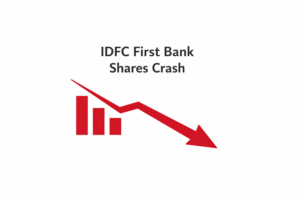Best Tyre Stocks in India

The booming Indian tyre industry is driving the vibrant domestic automotive sector, which comprises automobile manufacturers and auto parts manufacturers. Investing in tyre stocks is like cruising down a high-speed freeway. This guide explores the qualities, market potential, and financial performance of India’s leading tyre stocks. Let’s understand more about this exciting industrial sector.
Introduction
India’s tyre stock market thrives, fueled by rising exports, infrastructure growth, and increasing vehicle demand. Tyre firms make substantial investments as they cater to both the OEM market and the replacement market.
New technologies and a growing trend toward sustainability enhance their appeal. Tires are in steady demand, driving these businesses. Individual investors can seize the opportunity to benefit from the automotive sector’s expansion.
Overview of the Indian Tyre Industry
India tops the world in tyre manufacturing. The domestic tyre manufacturing industry is entering high-value segments that were previously dominated by imports. Compared to 2015, the tyre market was expected to grow nearly four times by 2026.
Moreover, efficiency is also enhanced by the employment of technology and compliance with security regulations. The growth of the automobile industry is also promoting new opportunities for the tyre industry, helped by rising car ownership and government subsidies for EVs.
Importance of Tyre Stocks in Investment Portfolios
Investing in tyre stocks benefits portfolios because they can withstand market changes, provide steady dividends, and offer growth potential. Aftermarket demand fuels sales, which remain constant even during economic downturns. Many firms have strong finances, enabling them to grow their operations.
These stocks provide diversification benefits, particularly in the automobile and associated sectors. Investors must remain aware of risks, such as fluctuations in raw material prices and shifts in regulatory policies, that can impact profitability.
Top Tyre Companies in India by Market Cap
Understanding the major participants in the nation’s tyre market, which are covered in more detail below, is crucial. A selection of the leading tyre stocks in India is listed below, along with their performance, share price movement, and current market position.
Balkrishna Industries Ltd
With a market capitalization of ₹49,875 Cr, Balkrishna Industries Limited is engaged in the business of manufacturing and selling of off-highway tires (OHT) in the specialist segments, such as agricultural, industrial and construction, earthmovers and port, mining, forestry, lawn and garden and all-terrain vehicles (ATV).
MRF Ltd
MRF Ltd, the largest tyre manufacturer in India, boasts a market cap of ₹44,580 Cr and is renowned for producing a wide range of tyres for motorbikes, commercial vehicles, and passenger cars. To maintain its reputation for excellence and performance, the company is now expanding into industrial conveyor belts and sporting goods.
Apollo Tyres Ltd
With a market cap of ₹24,613 Cr, Apollo Tyres is one of the top tyre manufacturers in India. The company manufactures tyres for trucks, cars, and off-road vehicles. The firm operates as a global corporation, running factories in Europe and India. The company makes cars that are more fuel-efficient, reliable, and innovative.
CEAT Ltd
Passenger car, commercial vehicle, two-wheeler, and specialist vehicle tyres are manufactured by CEAT Ltd. It has a market capitalization of ₹9,612 Cr and serves both local and global markets. The company has a reputation for performance and durability and is renowned for its cost-effective and eco-friendly tyre solutions.
JK Tyre & Industries Ltd
As a leader in radial tyre technology in India, JK Tyre produces a wide variety of tyres for cars, trucks, and off-road vehicles. The firm prioritizes sustainability and drives innovation. The market capitalization stands at ₹6,956 Cr, and the company engages in research and development initiatives in the significant tire export industry.
Financial Performance Analysis
Investors can evaluate the efficiency and well-being of tyre stocks using financial performance analysis. For investment purposes, it focuses on major parameters such as the profitability ratio, ROE, margins, and revenue growth.
Revenue and Profit Margins
Topline growth indicates strong demand and the effective functioning of the tyre company. Sustained revenue growth is a signal of either price power or volume strength. Healthy profit margins demonstrate effective cost control, a suitable product mix, and operational efficiency.
Resilient businesses maintain profits despite rising input costs by optimizing processes, investing in R&D, or using hedging strategies. Solid margins and steady revenue performance mark a tyre stock’s long-term investment quality.
Return on Equity (ROE) and Return on Capital Employed (ROCE)
Additionally, ROE and ROCE indicate how effectively a company utilizes its shareholder capital. In this field, capital expenditures are justified due to the need for equipment, plants, research, and compliance with regulations.
Effective capital allocation that produces healthy returns indicates sound organizational discipline and governance. Investors should thus prefer companies with steadily increasing ROE/ROCE ratios as they indicate the generation of shareholder value.
Debt‑to‑Equity Ratios
Conversely, the production of tyres is often a relatively capital-intensive process. Therefore, businesses typically take on debt to sustain working capital or expand their capacity. Thus, evaluating debt-to-equity ratios is crucial.
Less leverage reduces financial risk and increases flexibility for making investments or enduring downturns. While a certain amount of debt can be beneficial, taking on too much can strain balance sheets, especially if margins contract or demand declines.
Market Trends Influencing Tyre Stocks
Market trends significantly influence the performance of tyre stocks. Raw material prices, automotive demand, and export opportunities significantly impact growth and shape investor sentiment.
Impact of Raw Material Prices
Raw materials greatly impact tyre costs. Fluctuations in the prices of natural and synthetic rubber, carbon black, oil, and steel have a significant impact on margins. A sharp rise in global crude oil prices typically increases synthetic rubber costs, squeezing profitability, prompting companies to pass on the burden to customers.
Rubber and carbon black producers that are vertically integrated provide better insulation. Clever hedging and contracting maintain consistent costs. Investors should prefer companies that face minimal raw material risk and have diverse revenue sources.
Automotive Industry Growth
Overall automotive growth serves as another key lever. India’s expanding middle class and improving rural mobility drive the sales of passenger vehicles and two-wheelers. The rising spending on logistics and infrastructure benefits the commercial vehicle segment.
As a result, tyre demand increases—when OEM production rises, tyre companies see volume growth. The aftermarket portion contributes to this by selling replacement tyres via dealerships and service centers. Companies that operate in both OEM and aftermarket segments grow more consistently.
Export Opportunities and Global Expansion
Indian tyre firms are tapping into export markets, reaching out to both emerging economies and developed nations. Exporting goods to other countries allows companies to avoid relying on just the domestic market, keeps their income steady, and increases their margins.
Meanwhile, companies that build export-compliant products, such as heat-resistant tires, stand out. A company that expands globally manufactures products in other countries or collaborates with local companies, thereby boosting its credibility and increasing its revenue.
Investment Strategies for Tyre Stocks
When investing in companies, investors must devise a strategy that reflects their risk tolerance, investment horizon, and market perception. Tyre stocks rely on raw material dynamics and have cyclical characteristics, but offer scalable growth opportunities and the prospect of dividend returns.
Long‑Term vs. Short‑Term Investment Perspectives
When considering the long term, look for firms with robust balance sheets, a varied product mix (OEM + aftermarket + exports), steady ROE/ROCE, and minimal leverage. These organizations are well-positioned to handle cyclical swings and capitalize on growth in the automotive industry over time.
Short-term traders may benefit from a cyclical upswing, for example, when car sales suddenly increase or oil prices stabilize. Short-term activities require adjustment for regular monitoring and value volatility.
Diversification within the Automotive Sector
Tyre stocks correlate with the industrial climate, but they do not always move together. A two-wheeler tyre maker may perform differently from a commercial tyre maker when rural demand diverges from urban trends.
Therefore, investors can consider incorporating stocks related to passenger cars, two-wheelers, commercial vehicles, and export-oriented businesses. The distribution between integrated businesses with backwards operations and specialty experts boosts resilience. Diversification decreases segment-specific risk.
Risk Assessment and Management
Fluctuating currencies, raw material costs, and regulations make it essential to conduct a thorough risk assessment before investing in tyre stocks. Hedging, procurement contracts, and vertical integration enhance overall stability.
Exporters encounter significant trade barriers, and they must innovate and improve efficiency due to intense global competition. Companies investing in cost-effective manufacturing and environmentally friendly technologies manage risks more effectively and stay competitive in worldwide markets.
Conclusion
Tyre stocks in India present strong investment potential, fueled by growth in the automotive sector and global opportunities. Companies that possess solid fundamentals, maintain healthy financials, and implement innovative risk management stand in a strong position. To capitalize on underlying industry tailwinds, investors seek companies with strong margins, an export-oriented strategy, and a diversified portfolio.
FAQs
Which is the best tyre stock to invest in India for 2025?
Choosing the best tyre stock relies on financial strength, market position, and export reach. The top firms will be those that have high profit margins and utilize innovative ideas to drive development.
How does the performance of tyre stocks correlate with the automotive industry?
Tyre stocks closely reflect the trends in the automotive industry. Higher car sales mean more OEM demand and aftermarket replacements, which is excellent news for tyre manufacturers.
What are the risks associated with investing in tyre stocks?
Changes in regulations, raw material prices, and trade restrictions worldwide are significant concerns. Besides, changes in currency values and competitiveness impact profit margins and the stability of businesses.
How do raw material prices affect tyre company profits?
Rising raw material prices reduce margins when businesses are unable to pass the costs on to customers. Companies that implement hedging or integration strategies effectively safeguard their profitability during fluctuations.
Are tyre stocks suitable for long-term investment?
Yes, tyre stocks are a good long-term investment since there is always a demand for them. Steady cash flows, dividends, and growth in exports boost their long-term attractiveness.
What are the dividend yields of the top tyre companies in India?
The dividend yield is based on a company’s profitability and financial stability. Well-known tyre companies that generate substantial profits often pay dividends to shareholders. Among tyre stocks, Balkrishna Industries has a dividend yield of 0.61%, MRF Ltd has a dividend yield of 0.16%, and Apollo Tyres has a dividend yield of 1.11%.
How has the export market impacted Indian tyre manufacturers?
Exports diversify revenue sources and improve profitability. Indian tyre manufacturers have had to enhance their technology, increase quality, and become more competitive due to the demands of the global market.
What role does government policy play in the tyre industry?
Government policies shape rubber prices, influence environmental norms, and drive trade dynamics. Export incentives and infrastructure growth boost demand for tyres in the country.
Disclaimer
The stocks mentioned in this article are not recommendations. Please conduct your own research and due diligence before investing. Investment in securities market are subject to market risks, read all the related documents carefully before investing. Please read the Risk Disclosure documents carefully before investing in Equity Shares, Derivatives, Mutual fund, and/or other instruments traded on the Stock Exchanges. As investments are subject to market risks and price fluctuation risk, there is no assurance or guarantee that the investment objectives shall be achieved. Lemonn do not guarantee any assured returns on any investments. Past performance of securities/instruments is not indicative of their future performance.
To read the RA disclaimer
Research Analyst - Gaurav Garg







